By Leonardo Goi
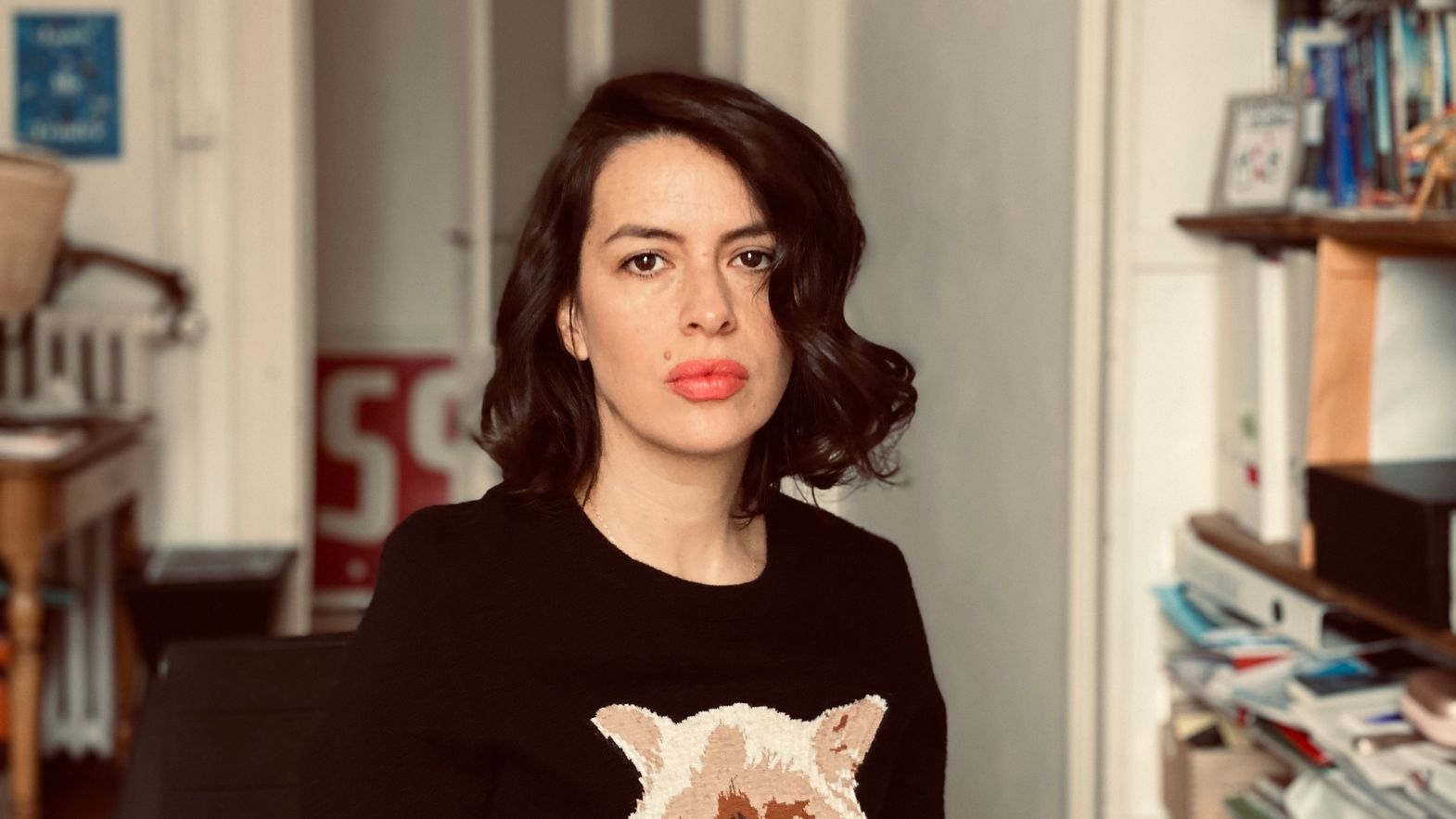 ©KLAUDIA REYNICKE
©KLAUDIA REYNICKE
Leonardo Goi: Watching Reinas, I kept thinking about your 2013 documentary, Así Son Los Hombres, another film centered on a Peruvian family – your own – scattered around the world, which you’ve said came to life after you happened upon a stash of old VHS tapes. What was the trigger for Reinas?
Klaudia Reynicke: I never really thought about that documentary in relation to Reinas – which is very strange, because more and more people seem to be drawing that analogy. What brought me to this story was a will to reconnect with Peru. This is my third feature. I shot my first two here in Europe – I also did a TV series for Swiss and French TV, La Vie Devant (2022) – which is great. I live here now, and can relate to this corner of the world. But whenever I introduce myself as Peruvian, people always sound a little skeptical. I began to feel as though I was losing my Peruvian side, simply because I really didn’t know the country. I mean, I left when I was ten, and returned twice or thrice since – but only on vacation. The older I grew, the more I felt as though I needed to give something back. I knew I needed to shoot a project there. All my films deal with family matters, one way or another, but here I was specifically interested in a moment you seldom see in cinema – the moment you must prepare yourself to leave your home. Most migration films follow people either as they travel or after they’ve arrived and they don’t know what to do because everything is foreign to them. But that particular moment when you’re in the country you know you’ll soon be leaving, that’s something that’s so intense it’s a lot harder to talk about – and that was what I wanted to address. As I started writing, it (Metal y Melancolía, 1993), by Heddy Honigmann and Peter Delpeut. Honigmannborn Dutch director, and she made this jewel of a documentary! —where she followed a few taxi drivers around Lima. Except these weren’t taxi drivers “proper.” Like the father in Reinas, they were folks who’d been forced to take the job because the country’s economy in the early 1990s was totally crushed. You can watch it on YouTube! – where she followed a few taxi drivers around Lima. Except these weren’t taxi drivers “proper.” Like the father in Reinas, they were folks who’d been forced to take the job because the country’s economy in the early 1990s was totally crushed.
I was specifically interested in a moment you seldom see in cinema – the moment you must prepare yourself to leave your home.
LG: You wrote the film with Diego Vega, another Peruvian based in Europe. How important was it for you to work with someone who might have experienced a similar kind of dislocation?
KR: Absolutely vital. I started to write Reinas by myself, but quickly I realized I needed someone who was Peruvian like me and who might have a better sense of what had happened in those years, because I left when I was very young. Diego was a friend I met for the first time in Locarno, coincidentally, when he was in town with his brother Daniel for the film they’d both worked on, El Mudo (2013). We became friends, and years later, I called him back and pitched him the script. He loved the idea. And he’s an expat, too – he left Peru for the first time when he was only 14, moved to Mexico, then moved back to Lima, where he lived for a few years as an adult, before settling down in Barcelona. It felt great to have someone whose own family story spoke to the one I had in mind; being able to have his own point of view was invaluable.
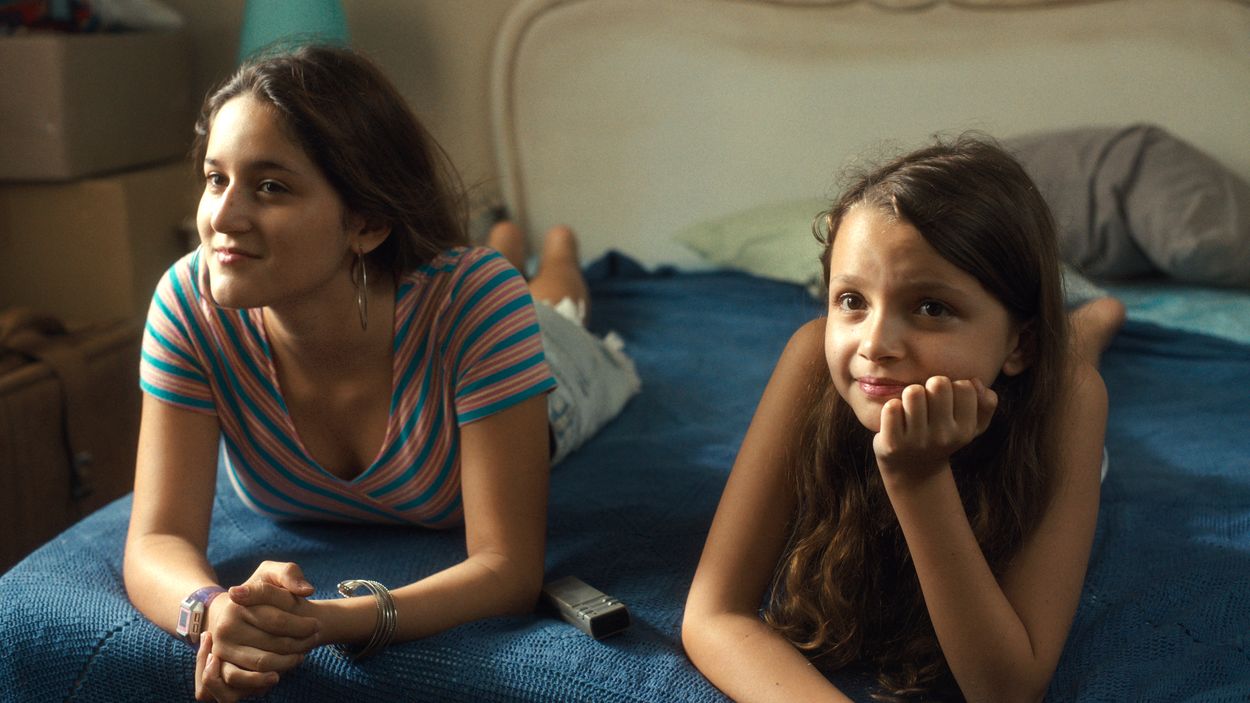 ©Alva Film, Inicia Films, Maretazo Cine
©Alva Film, Inicia Films, Maretazo Cine
LG: How long did it take you to write the script, and how much did it change through the years?
KR: Any project as complex as this goes through many phases. When I was writing by myself I’d actually thought about a stepdad character, and then cut him to concentrate on the dad, and eventually the girls. All I knew from the beginning was that the film would follow two young sisters who are about to leave and have a chance to reconnect with their estranged father before they do. It’s funny because right as I was wrapping my final cut, I found an old pitch I had written in 2000, and the logline was exactly the same. I couldn’t believe I’d gone back to the start. The whole writing process took about three years, during which we worked on and off. At first we didn’t get the funding we’d applied for. I always thought this was a very fragile film, because it has no real protagonist, and the antagonist is basically the context. But I didn’t want to foreground that, because this was never going to be a political film. It’s a family film. And that balance was very hard to find in the writing. Once we received that first rejection, we rewrote the script, but I still think people didn’t really understand how we wanted to do it. That might be because there’s a tendency among funding commissions to think of the script as this red line that the film must follow. And it’s really not! In the end, you always find your film in the editing room.
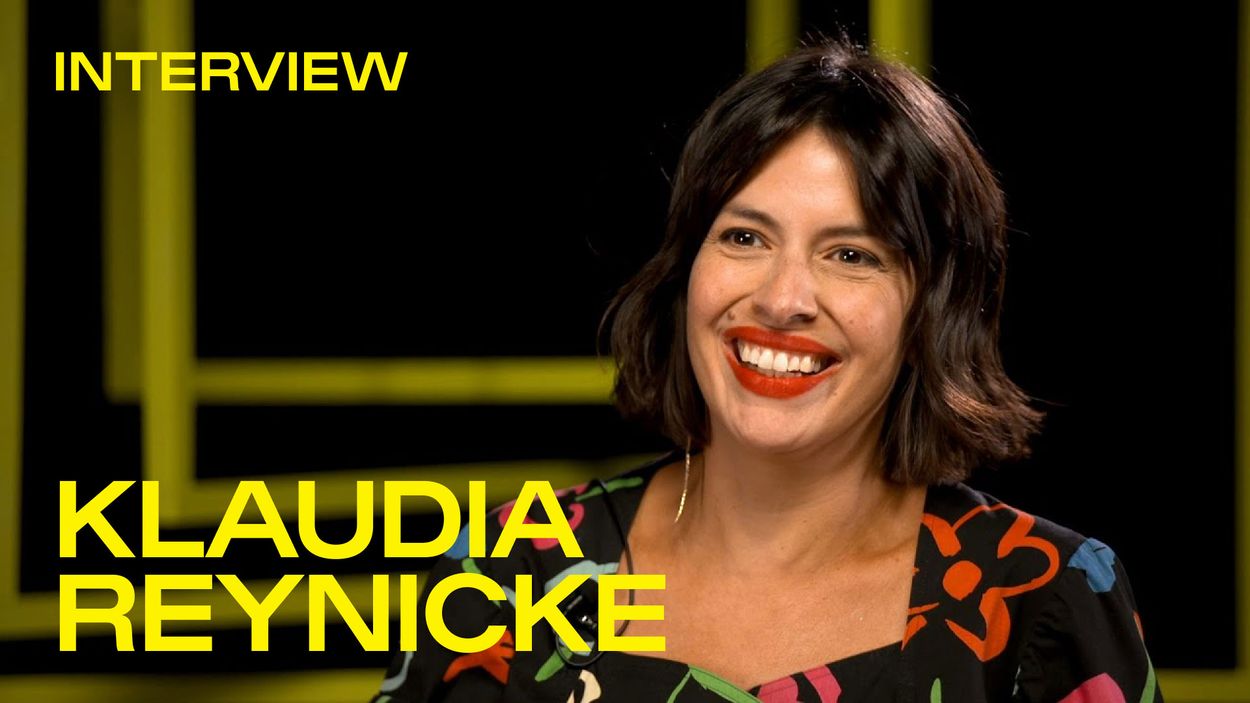
LG: Do you find that your characters linger with you once the film is wrapped? Is there anyone in Reinas that’s still haunting you?
KR: I don't think there’s one character that’s stayed more than the others. Reinas, to me, is like a package. I just can't think of the father without his two daughters, or the daughters without their grandma, or the mom. That said, there is a character that makes me laugh every time, which is the ghost – but I wouldn’t say it’s haunting me! [laughs]
LG: And was there any character that proved very difficult to write? Or, vice versa, a character you really enjoyed crafting?
KR: I guess the most difficult was the mother. The father was easier, relatively. He’s a man with a fervid imagination, and can entertain you with all kinds of tricks. He lies, yes, but he still makes you laugh – and that was in large part thanks to the casting. Gonzalo Molina is a very generous actor. He’s so light! Which I think really helps the audience love his character, Carlos. Maybe if we’d cast someone who was a little more mysterious it would have been harder. But the mother was difficult simply because she just doesn’t have the greatest part in the film. She does all kinds of practical things: she’s been raising the kids, has a plan, wants to go away. She’s the pragmatic one, and because she’s never been able to count on her husband, she’s also the bad cop. Which made it harder to write her. The kids – well, everyone’s going to love the kids, that wasn’t an issue. With their mother though, we needed to build her character beyond her complicated relationship and fights with Carlos. It was quite hard to find some kind of balance for her. Most of the work Diego and I did was about her, actually – whether we wanted to write more or less about her character.
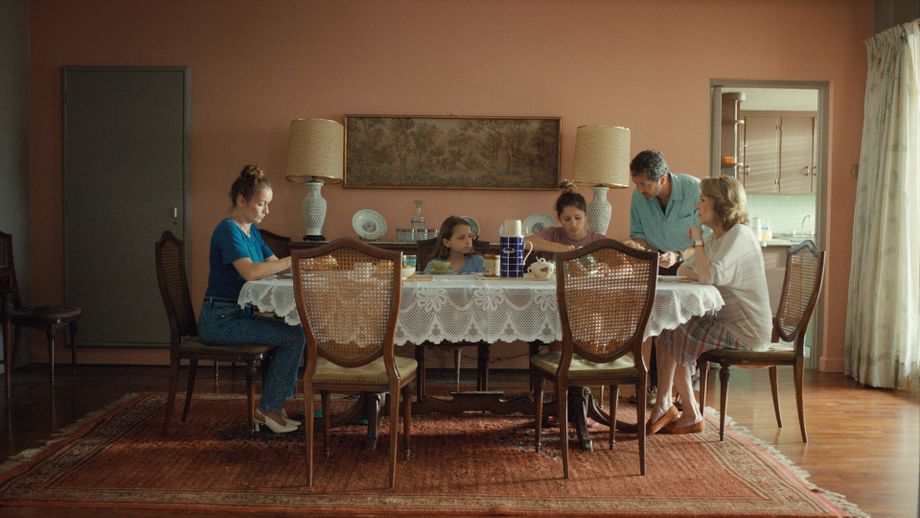
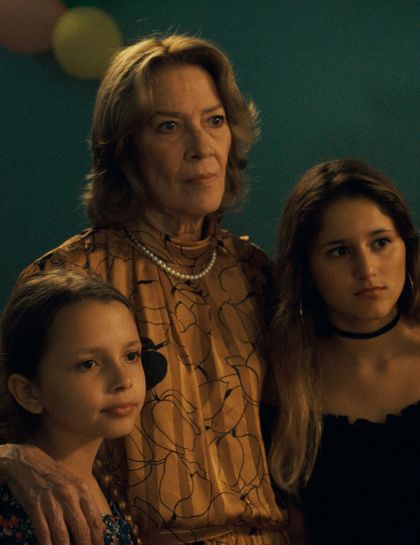
LG: I want to go back to the film’s historical and political setting. I was very impressed by how little you reveal about what’s happening outside the house. Save for that TV newsreel you show in the preamble, there’s no mention of Peru’s key players at the time (then-President Alberto Fujimori; his head of secret services, Vladimiro Montesinos) and the atrocities they committed in those years. Could you speak more about the film’s balancing act between family and history, between the micro and the macro?
KR: We did include some of those names, initially, but then ended up taking them out, because I think this needed to be a more universal tale. Adding a few names here and there to underline things… it just wasn't enough. The clip you mention right at the beginning of the film, with the journalist talking about all those skyrocketing prices, that’s a very famous video that profoundly impacted the country, and which people still watch today. It’s the day they woke up to the news that Peru was going upside down, basically. I thought it’d be more powerful to capture moments like that than to rely on names that might click for some people but not for others. I was more interested in the results of these systemic changes, to talk about the desperation that a middle-class family must wrestle with when the world they’re familiar with suddenly collapses.
LG: You’ve mentioned Gonzalo Molina, but how and where did you cross paths with your two young actresses, Abril Gjurinovic and Luana Vega?
KR: Well, we started casting for the two sisters before COVID. I was in Switzerland at the time, so it was long-distance: we had casting managers in Peru that would send me tapes. I realized pretty soon that I didn’t want to watch kids that were involved in TV or commercials because they already had some kind of language that was very difficult for me to fix. You can do that with adults, but with kids it's much harder. So I started asking our collaborators to just go out and look in the wild! [laughs] Then COVID hit. We stopped for two years – the impact of the pandemic in Peru was absolutely terrible. Only after we resumed working on the project did we find Abril, the youngest, who plays Lucía. She was in a mall with her father, and they agreed to meet for the audition. When I saw her, it was instant, you know? I just knew she’d be the one. Except – when I told our casting managers, they said they couldn’t find her anymore. Turns out she didn’t live in Peru but in Belgium with her mom. It took us about a month to track her down.
I don't direct kids the way I’d direct adults.
LG: Sounds oddly similar to her character’s own story.
KR: Absolutely! When we first came across her she was with her father on holiday in Lima, but she had to return to her home in Belgium. As for Luana, who plays Aurora, I had auditioned a few girls, but wasn’t totally satisfied. And then one day I was speaking on Zoom with Daniel Vega, Diego’s brother, when his 14-year-old daughter walked past him. I was like, “Why has she not auditioned yet?” But he said she just wasn’t interested. Both her parents work in the film industry and she didn’t want to follow them. She wanted to become a lawyer, or a doctor. I asked him to send me pictures of her, and then suggested maybe she should go to the audition with one of her friends, and see whether she’d feel comfortable giving it a shot. And she did. She went with a girlfriend whom we cast as one of Aurora’s friends, and she agreed to audition. She was just amazing. I called her up: “Are you interested in doing this or not, Luana? Because if you're not, obviously I'm not going to force you – but I need to feel that there's some little passion in this.” But she said she was in. “My dad said I would be paid.”
LG: It’s good she had her priorities straight!
KR: Yes! [laughs] She’s very funny, and super smart. Speaks like five languages, and she was insanely professional.
LG: This is not the first time you’ve worked with children; I’d love to hear more about how you direct young, non-professional actors.
KR: I don't direct kids the way I’d direct adults. I don’t give kids specific words. I talk with them. I might say things like, “Okay, try to think about this and do this thing, or say that thing…” You can’t have the same approach you’d have with a grownup; you can’t go to a kid and say, “Okay, let’s redo this scene, but this time you’re sad.” You have to get to know them first. I usually spend a lot of time with them, until they trust me, which is the most essential thing. Then, everything is much easier. Not that working with Abril and Luana was ever tricky. You just have to keep in mind that it needs to continue being a game for them, not work. So we set up a schedule that would protect them – we decided we wouldn’t shoot more than six hours a day with them, for instance. In the end, we created a space where they would feel safe, which – this being their first experience on set – was supremely important.
It’s actually amazing to work with someone to whom you barely have to say a word on set.
LG: Can we talk about the cinematography? I know your DOP, Diego Romero, from his work with Roberto Minervini; was his background in documentary one of the reasons why you picked him?
KR: Diego and I have a great collaboration. We worked together in Love Me Tender (2019), and we teamed up again for the series, La Vie Devant (2022). We know each other really well by now, and I love the fact that Diego has this enormous experience in both fiction and documentary. I'm a big, big fan of Minervini’s work – I actually got to see his films for the first time while editing The Nest. My editor, Marie-Hélène Dozo, suggested I check them out; I immediately fell in love with them – and that was in large part because of the incredible quality of the cinematography. They may be documentaries, but you always somehow feel like you’re in a fable. When the Vega brothers set out to make their third film, La Bronca (2019), they hired him as their DOP, and eventually introduced us. He’s a very intense character – very funny, but he’s an artist. Like, back when we shot Love Me Tender, he didn’t work with artificial lights, because of his background in documentary, I suppose. Which is quite amazing, because if you watched the film you wouldn’t even notice. It’s very curated. But we barely had any lights. I’d done The Nest with Hélène Louvart as my DOP, which was an extraordinary experience, but it’s a completely different school. It’s more French – more classical. Lots of lights, lots of waiting around. With Diego, he was always the one who would wait for us! [laughs] His approach has changed a little since, but the reason we work so well together is that we work very fast. We never once did extra time, in any of the projects we collaborated on. And that’s down to the preparation we do before we shoot. Which allows for last-minute changes; I can tell him I’ve changed my mind about this or that camera placement and he’ll adjust to the new set-up in no time. . It’s actually amazing to work with someone to whom you barely have to say a word on set.
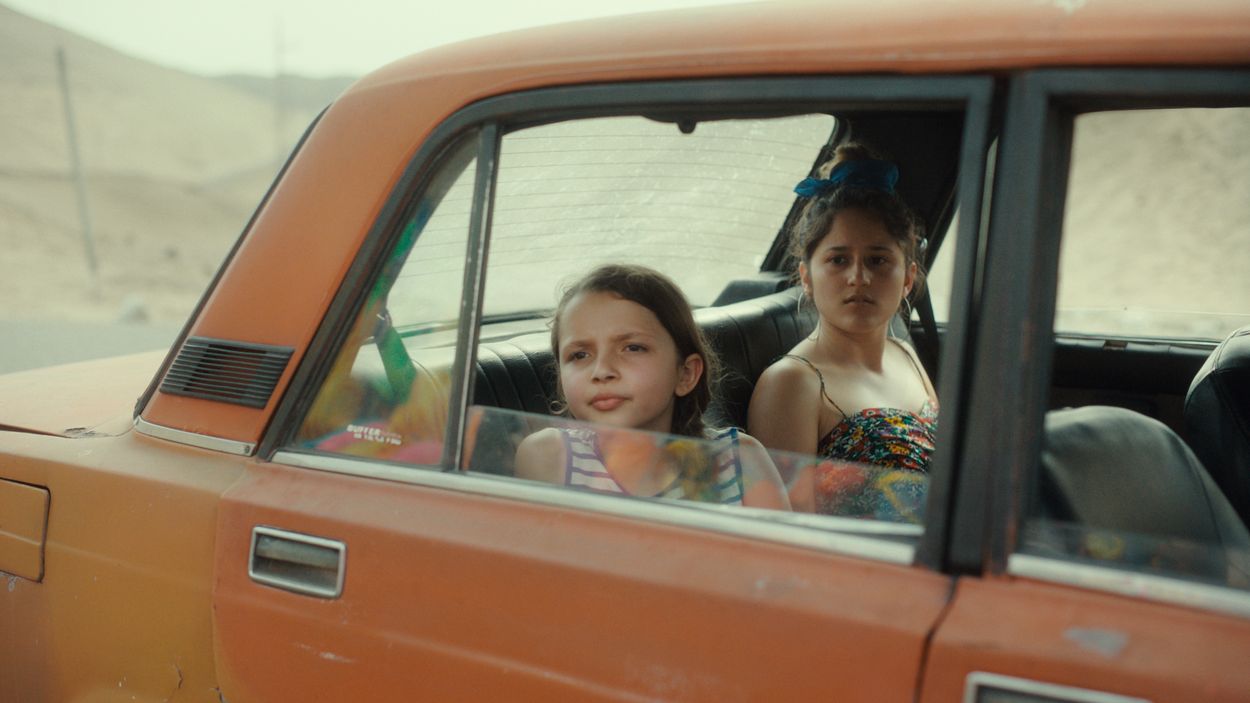 ©Alva Film, Inicia Films, Maretazo Cine
©Alva Film, Inicia Films, Maretazo Cine
LG: I hope you won’t mind this more personal question, but I was curious to hear how you felt about shooting a film in the country you were born in, but had long since lost touch with…
KR: We only got the green light in September 2022. We’d sent the second, revised script in June, and suddenly in September the Swiss funding arrived. I just couldn’t believe it. I was also very scared. I’m a mother of two, and my children are still very young – one’s seven, the other twelve. I’ve always taken them with me, to the extent that I could, so we could spend as much time as possible while I was shooting. But I always worked in Switzerland. For Love Me Tender, I could just bike to work—the set was a five-minute commute. And with the series, my kids were able to come with my husband and mom, and stay a whole month with me. So suddenly I was like, “What do I do?” I mean, I didn’t even know Peru anymore, didn’t even know if I could direct in Spanish, if I spoke the language well enough… October came; I flew to Lima to finalize the casting and meet the actors. I arrived at the beginning of the spring there; it was very cold and humid, very different from my memories of the city. It was all gray. Suddenly I started wondering if I even liked Lima anymore… [laughs] Then I went to a few restaurants, and things changed.
But yeah, it was very hard to adjust to a country I didn’t even know if I could call mine anymore. And then the clashes and protests broke out. In December, President Castillo attempted a self-coup, just like Fujimori did thirty years before. It didn’t work. They put him in prison, replaced him with his vice president, who has ruled as a kind of dictator since. People started protesting. They took to the streets; there were clashes, some protesters were killed. And we were right in the middle of it all, making a film about those same frustrations, you know? It felt like we were inside the same story! [laughs] Every day the producers warned us we might have to pack up and leave; the situation kept getting worse. We even had to move the main location from central Lima to a more remote urban area. And then one day it started raining – which it hadn’t in 38 years, apparently. It was just a few drops, but it turned into a disaster. A little rain in Lima means mudslides along the coast, which is exactly what happened. We were shooting in this beachside location; a week later the whole area was completely destroyed by the floods.
But it all worked out in the end. We were a crew from three different countries, and there were four or five languages spoken on set. It was probably the most amazing shooting experience I’ve ever had. The love and the passion everyone put into this… it was just insane. As a director, it helps a lot to have a team willing to fight for your vision, because that’s the only thing that’s going to make your film different from all the others. And one thing I’ve learned along the way is that if there’s something I must never compromise on, that’s my vision – which of course includes any imperfections that might come with it, because it’s imperfections that make your artwork truly yours. But if you want to keep those in the final cut, then you really have to fight for them. That was the big battle right until the end here.
It was very hard to adjust to a country I didn’t even know if I could call mine anymore.
LG: Would you say then that making this film healed your relationship with Peru? Did Reinas change the way you think of your identity and your ties to your country of birth?
KR: Oh, definitely. I feel there is a life before Reinas, and there is a life after it. To be able to spend three months in Peru – not as a tourist, but to do my job, surrounded by other Peruvians and Europeans… it was just priceless. I want to go back once a year now. I want my kids to be able to relate more to a country I was forced to leave too soon, and which now I’m old enough to reconnect with. I want to make other projects in collaboration with other Latin American countries. That doesn’t mean that now I’m going to be obsessed with making films there – each story needs to find the right place to be told; not all of them can start in Lima. But yeah, my own relationship with the country has completely changed. It’s very important not to romanticize one’s place of birth, especially if you’ve spent so much time away from it – and I’m glad I don’t anymore. But I’m also glad that I got to know and love my country much more, and that I can finally talk about it with ease; that I can talk about Lima, about all the other nice places I visited, how much I feel Peruvian and how much I feel Swiss – because they’re both equally important parts of who I am. It’s been quite a journey.